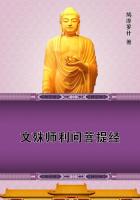REACHING London in the fogs and mists of November, 1882, the first person I met, after a separation of many years, was our revered and beloved friend William Henry Channing. The tall, graceful form was somewhat bent; the sweet, thoughtful face somewhat sadder; the crimes and miseries of the world seemed heavy on his heart. With his refined, nervous organization, the gloomy moral and physical atmosphere of London was the last place on earth where that beautiful life should have ended. I found him in earnest conversation with my daughter and the young Englishman she was soon to marry, advising them not only as to the importance of the step they were about to take, but as to the minor points to be observed in the ceremony.
At the appointed time a few friends gathered in Portland Street Chapel, and as we approached the altar our friend appeared in surplice and gown, his pale, spiritual face more tender and beautiful than ever. This was the last marriage service he ever performed, and it was as pathetic as original. His whole appearance was so in harmony with the exquisite sentiments he uttered, that we who listened felt as if, for the time being, we had entered with him into the Holy of Holies.
Some time after, Miss Anthony and I called on him to return our thanks for the very complimentary review he had written of "The History of Woman Suffrage." He thanked us in turn for the many pleasant memories we had revived in those pages, "but," said he, "they have filled me with indignation, too, at the repeated insults offered to women so earnestly engaged in honest endeavors for the uplifting of mankind. I blushed for my sex more than once in reading these volumes." We lingered long, talking over the events connected with our great struggle for freedom. He dwelt with tenderness on our disappointments, and entered more fully into the humiliations suffered by women, than any man we ever met. His views were as appreciative of the humiliation of woman, through the degradation of sex, as those expressed by John Stuart Mill in his wonderful work on "The Subjection of Women."
He was intensely interested in Frances Power Cobbe's efforts to suppress vivisection, and the last time I saw him he was presiding at a parlor meeting where Dr. Elizabeth Blackwell gave an admirable address on the cause and cure of the social evil. Mr. Channing spoke beautifully in closing, paying a warm and merited compliment to Dr. Blackwell's clear and concise review of all the difficulties involved in the question.
Reading so much of English reformers in our journals, of the Brights, McLarens, the Taylors; of Lydia Becker, Josephine Butler, and Octavia Hill, and of their great demonstrations with lords and members of Parliament in the chair,杦e had longed to compare the actors in those scenes with our speakers on this side of the water. At last we met them one and all in great public meetings and parlor reunions, at dinners and receptions.
We listened to their public men in Parliament, the courts, and the pulpit; to the women in their various assemblies; and came to the conclusion that Americans surpass them in oratory and the conduct of their meetings. A hesitating, apologetic manner seems to be the national custom for an exordium on all questions. Even their ablest men who have visited this country, such as Kingsley, Stanley, Arnold, Tyndall, and Coleridge, have all been criticised by the American public for their elocutionary defects. They have no speakers to compare with Wendell Phillips, George William Curtis, or Anna Dickinson, although John Bright is without peer among his countrymen, as is Mrs. Besant among the women. The women, as a general rule, are more fluent than the men.
I reached England in time to attend the great demonstration in Glasgow, to celebrate the extension of the municipal franchise to the women of Scotland.
It was a remarkable occasion. St. Andrew's immense hall was packed with women; a few men were admitted to the gallery at half a crown apiece. Over five thousand people were present. When a Scotch audience is thoroughly roused, nothing can equal the enthusiasm. The arrival of the speakers on the platform was announced with the wildest applause; the entire audience rising, waving their handkerchiefs, and clapping their hands, and every compliment paid the people of Scotland was received with similar outbursts.
Mrs. McLaren, a sister of John Bright, presided, and made the opening speech.
I had the honor, on this occasion, of addressing an audience for the first time in the Old World. Many others spoke briefly. There were too many speakers; no one had time to warm up to the point of eloquence.
Our system of conventions, of two or three days' duration, with long speeches discussing pointed and radical resolutions, is quite unknown in England. Their meetings consist of one session of a few hours, into which they crowd all the speakers they can summon. They have a few tame, printed resolutions, on which there can be no possible difference of opinion, with the names of those who are to speak appended. Each of these is read and a few short speeches are made, that may or may not have the slightest reference to the resolutions, which are then passed. The last is usually one of thanks to some lord or member of the House of Commons, who may have condescended to preside at the meeting or do something for the measure in Parliament.
The Queen is referred to tenderly in most of the speeches, although she has never done anything to merit the approbation of the advocates of suffrage for women.













